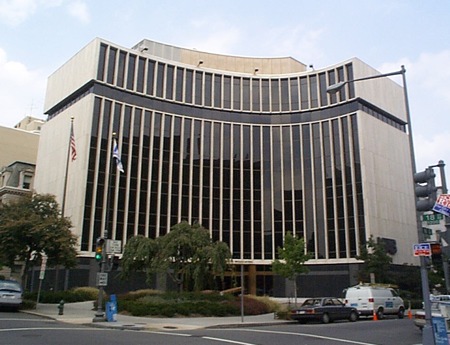NAB: FCC's 126 MHz Target Was 'Appropriately Aggressive'

The smarter way to stay on top of broadcasting and cable industry. Sign up below
You are now subscribed
Your newsletter sign-up was successful
The National Association of Broadcasters says it is OK with the FCC trying to get as much spectrum back from broadcasters as possible and told the FCC so in arguing that means it should back off trying to free up even more for Google and unlicensed wireless.
That came in a letter to the FCC last week from NAB spectrum auction point man and general counsel Rick Kaplan.
Google has been pressing the FCC to proceed with its proposal to reserve a channel for unlicensed use in markets that have a vacant channel after the post-auction TV station repack. Broadcasters point out that will leave one fewer channel for LPTVs and translators, which are unprotected in the repack, and one fewer channel for launching new TV stations or existing stations to potentially launch advanced services.
The FCC has set a clearing target of 126 MHz, the most it thinks it could get given interference issues along the boarder.
Kaplan called that an "appropriately aggressive" target that presents "opportunities and unique challenges." The opportunity is offering a lot of spectrum for wireless companies. The challenge is preserving as many of those unprotected LPTVs and translators, a challenge he said would be made materially worse by reserving a channel for Google.
Kaplan says that Google has twisted itself into a pretzel to try to get more spectrum but says that will add constraints that will disenfranchise some licensees at the expense of unlicensed.
While Google has pointed out that NAB's analysis of the auction impact on LPTVs and translators did not estimate how many stations would be forced off the air if the FCC adopts the vacant channel proposal, Kaplan said it did not take a rocket scientist to figure out that where there are no channels left in a market—i.e, the one channel left after the repack goes to unlicensed—LPTVs and translators will have nowhere to go.
The smarter way to stay on top of broadcasting and cable industry. Sign up below
Kaplan says there is no rush at any rate. The FCC should focus on the auction and revisit the proposal only "when it has a clear understanding of the facts," he concluded.
Contributing editor John Eggerton has been an editor and/or writer on media regulation, legislation and policy for over four decades, including covering the FCC, FTC, Congress, the major media trade associations, and the federal courts. In addition to Multichannel News and Broadcasting + Cable, his work has appeared in Radio World, TV Technology, TV Fax, This Week in Consumer Electronics, Variety and the Encyclopedia Britannica.

